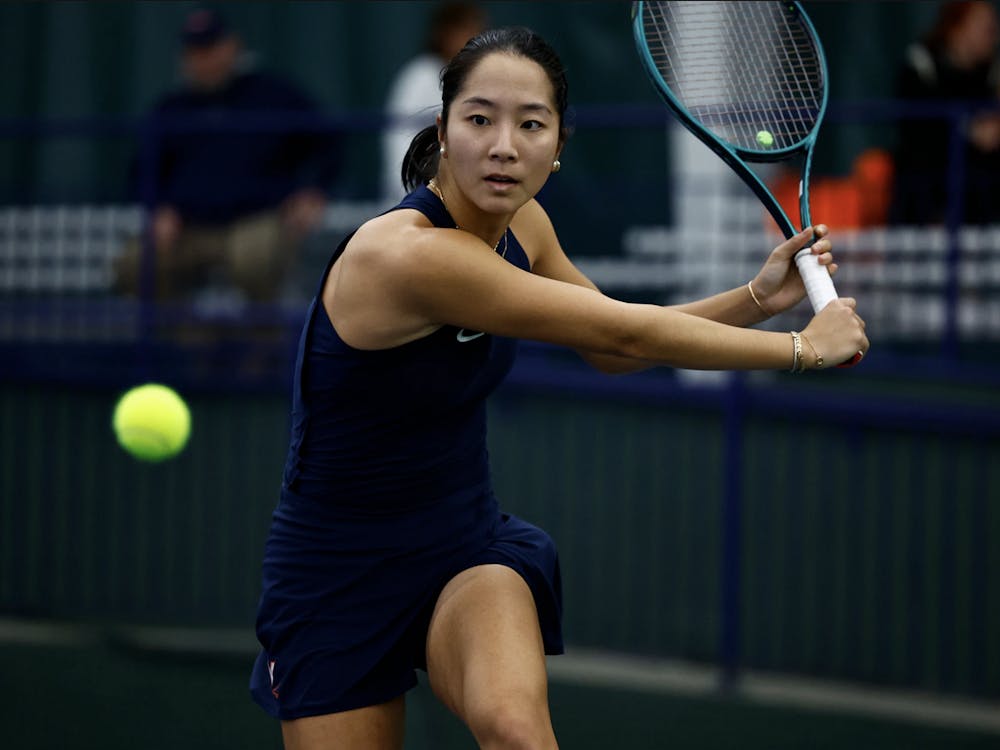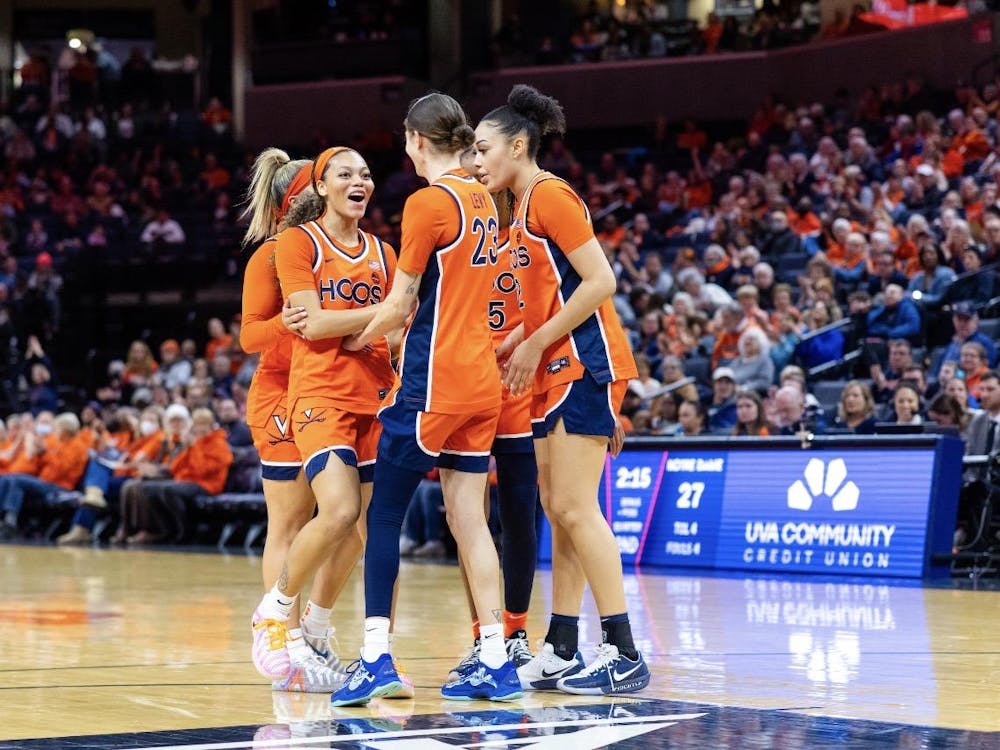When I sit back and think, I am always amazed about the role sports plays in our lives. Admittedly, some people are more affected by them than others, but sports have captured our attention for centuries.
Since the days of the first Olympiad in 776 BCE - when the competition brought about an Olympic-truce between nations - sports have influenced our lives to an incalculable degree.
There is 24-hour coverage of sports, thanks to networks like ESPN. And as if that weren't enough, ESPN2, ESPN Classic, ESPN News - the list goes on - were created. 100 million people watched Superbowl XLIII. 715.1 million people watched the finals of the World Cup in 2006. That's roughly a ninth of the total world population. The Cavalier Daily has an entire section that covers only Virginia sports. Many - not just athletes - devote their lives to athletic activity. There are coaches, athletic trainers, reporters, analysts, groundskeepers, referees, etc.
Why do sports have such a profound effect on our existence?
The human condition.
What do I mean by the human condition? I mean that sports appeals to every characteristic that makes us what we are. The struggle and drama of athletic competition represents everything that makes us human. That is why we are so infatuated with sporting events and the athletes who star in them.
On some level, we all follow sports to see athletes be athletes - that is, to see them accomplish incredible feats. Watching Albert Pujols crush a 450-foot home run. Seeing Tiger Woods crush a golf ball 300 yards. Michael Jordan dunking on Partick Ewing. Tom Brady hurling a ball 60 yards and hitting Randy Moss - streaking downfield - in stride.
These are all well and good, but this appeals to us on a more superficial level.
The human condition, simply put, is the condition of being human - the distinct attributes of human existence. These characteristics - man's perception of reality - make up the human condition. Humans are intimately aware of success and failure and the drive to compete and prevail.
It is this human nature that makes sporting events so appealing. We love to get behind certain athletes and support particular teams. Being a Redskins fan lets you share a common experience. Washington fans become your family. Wearing an NFL jersey, you will always have a place to sit in a sports bar each Sunday - and a certain place you won't be able to sit. You and millions of other people share in the success or failure of the team each week.
Fans feel a bond with other fans, with the players and with the coaches.
But from an objective standpoint, there is no particular reason to be so devoted to the Redskins instead of any other team - like the Cowboys.
Not everyone is so devoted, though. People who switch their team allegiances frequently are persecuted. Why?
Loyalty. Humans respect loyalty. Not long ago, a fellow sports columnist expressed his respect for the Virginia Tech football fan base. He remarked that it was easy for him to get caught up in excitement of watching the Hokies accomplish a comeback victory against Nebraska. The uproar regarding these innocent comments ranged from simple disappointment to outright hatred. I remember comparisons to Benedict Arnold being made, as well as calls for the columnist's dismissal from the paper. Wahoos felt Dan Stalcup wasn't loyal.
To watch a sports event is to watch human condition shrunk down in time and space. Opposing teams or athletes struggle against each other, and the drama that ensues is richer than any person could dream.
Watching the 2007 Patriots, which would have otherwise been considered the greatest team ever to play the game, lose the one game that mattered most was both devastating and elating.\nSeeing the Titans come up one-yard short in Super Bowl XXXIV was gut-wrenching.
Steve Prefontaine's performance in the 5,000-meter run in the Olympics was demoralizing. For him to come so close to a gold medal, only to walk away with nothing was heartbreaking.
On the other hand, we are inspired when Kirk Gibson hits a walk-off home run to win Game 1 of the World Series. Or when Tiger Woods wins the U.S. Open with a torn ACL.
We tune in not to see the Vince Carters, but the Michael Jordans. Vince Carter - arguably one of the most athletic basketball players of all time - is great for the SportsCenter highlight reel. But Michael Jordan gives us drama.
Michael Vick can run a 4.2 40 and throw the ball a mile - great for a top-10. But Doug Flutie inspires us with accomplishments such as his "Hail Flutie" from his playing days at Boston College.
As humans, we want drama, loyalty and a shared experience. We find this in sports. Time and time again, teams like the George Mason basketball team or the Boise State football team stir our emotions. Athletes like Woods, Flutie and Jordan inspire us by doing the impossible - something that we, as mortal creatures, want to believe in.
Check back next week for part two.






